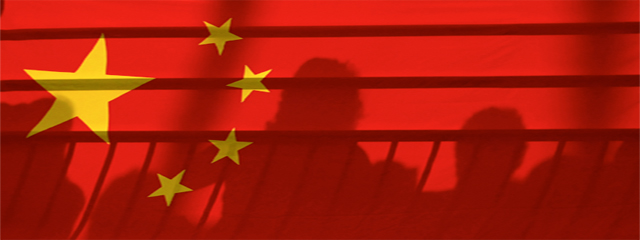China has reached a stage of development that entails unprecedented complexity. Three decades of unbridled progress created a miraculous economic boom. The dynamic was very simple: growth to create further growth, regardless of the obvious economic, social and political challenges left in its wake. But it may be time for China to start figuring out the puzzle of allocating resources in a country of 1.3 billion people that has been experiencing rampant growth.
According to Damien Ma, fellow at the Paulson Institute and co-author of the book “In Line Behind a Billion People: How Scarcity Will Define China’s Ascent in the Next Decade,” China is facing a crucial point in which both the Communist Party and the society must be able to define what they want to be and in which direction they want to move forward. “To understand China today you got to understand the political economy. Not just the economy, not just the politics but both simultaneously,” he adds.
China’s leadership and the more than three thousand delegates of the Communist Party are meeting at the annual National People’s Congress since last week. In his surprisingly down-to-earth opening speech, the Prime Minister Li Keqiang announced the policies that will govern the world’s second-largest economy this year.
“Currently, China’s reform has entered a critical stage and a deep water zone. We must fully rely on the people, break mental shackles and vested interests with ultimate determination, and use the economic structural reform as a starting point to deepen comprehensive reform in all areas”, said Li in his speech.
Openly acknowledging the toxic pollution levels that affect a large part of China are “a red-light warning sent by nature against the model of extensive development,” Li said that the main goal now is improving people’s livelihood and guaranteeing a more balanced development between the cities and the countryside. Consequently, this year China will keep it’s PIB growth at a 7.5%.
The Communist Party hopes that stable growth will help create urban jobs and provide more and better opportunities to migrant workers that travel to the cities hoping to find employment. “It’s not surprising Chinese growth is slowing down while at the same time they are trying to deal with a lot of problems that are surfacing. It’s a political system that it’s finding it very difficult to adapting to a 21st Century society. That’s the challenge that will define the Chinese story in the coming decades,” explains Ma.
The success of the export-centric model of intensive manufacturing has helped authorities ignore the omnipresent resource scarcity that threatens the country’s further development at all levels. The human cost is huge, says Ma. There’s a lack of ideas and values. Labour scarcity is happening at a very critical time in which China is trying to shift its economic model focused on manufacturing and exports. The cities enjoy more and better educational opportunities, as well as social services benefits that are almost unavailable on rural areas. Likewise, the housing bubble has engulfed the already tight supply of affordable housing. Not to mention the environmental costs. China also suffers of political scarcity due to government’s struggle to meet the expectations of the thriving middle class.
“What is going to define China going forward is not about growth but social-political governmental challenges. That in my mind is going to be much more difficult than the last three decades combined, when growth at the previous model was simple growth”, concludes Ma.






Be the first to comment on "China: Omnipresent Scarcity"